The Path of Reconstruction
As every British conservative writer, pundit, and academic will tell you, Prime Minister Benjamin Disraeli once said:
“The Conservative Party is a national party, or it is nothing.”
How right he was! Having ceased to be a national party in both respects, dispensing with any meaningful concept of the nation and placing all its chips on a concentrated slither of the Grey Vote – a demographic which it’s managed to alienate after a completely avoidable PR disaster – the party is on track to be reduced to nothing come this year’s general election.
Based on recent polling, the Tories are competing for a distant second with the Liberal Democrats, leading many to suggest 2024 is going to be Britain’s equivalent of Canada’s 1993 federal election, in which a centre-left lawyer secures a majority after the unpopular centre-right government, headed by an unlikeable first-of-their-kind Prime Minister, was decimated by a vote-splitting right-wing populist upstart called Reform.
Given this, it is worth considering the possibility of a Canada ’93-style erosion of the Conservative Party over the next five years and what this will mean for the British right, assuming it’s going to be represented by Reform UK or a different party arising from a merger between the two. After all, by his own admission, Farage isn’t trying to win the general election, stating it won’t determine which party enters government (rest assured, it will be Labour) but will determine which party leads the opposition.
The collapse of the Progressive Conservative Party – Canada’s main centre-right party – coincided with the rise of the Reform Party of Canada (RPC); a right-wing populist party founded in the 1980s and led by Preston Manning. The RPC originated as a pressure movement for advancing the interests of Western Canada, whose inhabitants felt increasingly alienated by the central government, especially as constitutional issues increased in salience. The RPC was particularly suspicious of attempts to grant “distinct society” status to Quebec, believing Canada was a federation of similar and equal provinces united by a set of rights and obligations, rather than an essentially multicultural and bilingual state.
As the RPC sought to become a national party, it was required to expand its appeal and therefore its political platform. The party dispensed with its Western-centric agenda and outright rejected calls within its rank-and-file for Western Canadian independence. In its place, the RPC formulated a platform dedicated to shrinking the size of the central government, lowering taxes, making considerable cuts to government spending, pursuing free trade agreements, supporting Christian social values, promoting direct democracy, and advancing political reform.
After its electoral breakthrough in 1993, the RPC continued to broaden its appeal, softening its positions to attract more moderate-minded voters in Canada’s Eastern provinces. Whilst the 1993 manifesto provided an extensive 56 reasons to vote for the party – over half of which dealt with the party’s core concerns, treating areas outside their remit with scarce detail – the party’s 1997 manifesto condensed its list of policies, softened its position on tax-and-spend, made national unity a top priority, and generally provided more thorough proposals. The party also openly disassociated with views which invited accusations of bigotry, intolerance, extremism but retained a focus on family-oriented social conservatism.
In the 1997 federal election, the RPC would increase its vote share and total number of seats, becoming the largest party in opposition and solidifying itself as the main conservative party in Canada. The party held onto its Western support base and managed to strengthen its influence in the Prairies, but still struggled to find support among moderate Atlantic Canadians, many of whom continued to support the PCP, despite its greatly diminished political influence. For the most part, the RPC was still viewed (and still functioned in many ways) as a regional party, seen by many as the Western equivalent of the Bloc Québécois – a party dedicated to the interests of Quebec and another major winner in the 1993 federal election.
To complicate matters further, the Liberal government of Jean Chrétien pursued greater financial discipline in order to reduce the national deficit. This occurred during a period of “constitutional fatigue” which tail-ended a turbulent period of controversial proposals for reform. As fiscal conservatism and political reform were the RPC’s core concerns, the party often struggled to oppose government policy despite being the largest party in opposition, simultaneously trying to integrate its newfound responsibilities (and privileges) with its populist background.
Concluding it needed to broaden its appeal even more, the RPC merged with several provincial wings of the PCP into a new right-wing party: The Canadian Alliance.
Similar to the RPC, the party continued to adapt its image, refine its positions, and broaden its platform. However, unlike the RPC’s 1997 manifesto, which largely homed-in on the party’s approach to its core issues, the CA’s 2000 manifesto paid greater attention to issues beyond the RPC’s traditional remit, such as international affairs, environmental conservation, and technological change, all whilst carrying over RPC policy on tax-and-spend, decentralization, and family values.
Alas, despite these efforts, the Canadian Alliance (CA) was short-lived, existing for less than half-a-decade, and was widely viewed as the RPC under a different name. The party would place second in the 2000 federal election, increasing its share of the vote and its number of seats as the RPC had done in 1997, but not before playing host to a major change in the Canadian political landscape: the end of Preston Manning’s leadership. For most members, a new party required new management, so the bookish Manning was ousted in favour of the clean-cut (but also gaffe-prone) Stockwell Day, whose outspoken evangelical views often contrasted his own party’s efforts at moderation.
The Canadian right would remain out of power until 2006, in which the newly founded Conservative Party of Canada (CPC), led by Stephen Harper, a former policy advisor to Preston Manning, defeated the incumbent Liberal Party and formed a minority government. Founded in 2003, the CPC was created from a full and official merger of the CA and the PCP. Combining policies and aspects of their intellectual traditions, the merger reinvigorated the centrality of fiscal conservatism in the Canadian centre-right, and united Canada’s once-divided right-leaning voters under one national banner.
Although courting the Christian right, Harper displaced the last remnants of the RPC’s populistic social conservatism to the party’s periphery, entrenching economic liberalism as the backbone of the CPC’s electoral coalition whilst formulating stances on a variety of issues, from immigration to arts and culture, from constitutional reform to public transit, from foreign policy to affordable housing, from international trade to social justice.
As it took roughly five years and two election cycles for the RPC to destroy and absorb the PCP, it’s possible that Farage is banking on achieving something similar. However, what this implies is that Farage intends to oversee the destruction of the Conservative Party, but not the reconstruction of Reform UK – at least, not in a frontline capacity. Once the Conservative Party has been sufficiently diminished, a relatively younger and less controversial candidate will take the reins and transform it into a political force which can continue to fight national elections and possibly form a government; someone to move the party away from ‘negativistic’ anti-establishment populism – primarily acting as a vessel for discontent at the insufficient (if not outright treacherous) nature of recent Conservative Party policy – and fully towards ‘positivistic’ solution-oriented policymaking and coalition-building.
Assuming this is Reform UK’s plan, seeking to replace the Tories after beating them into the ground over the course of a five-year period, Reformers must internalise a major precondition for success; besides, of course, overcoming the perennial task of finding someone who can actually replace Farage when he stands aside.
In admittedly generic terms, just as the RPC/CA had to find support outside of Albertan farmers, Reform UK (or the hypothetical post-merger party) will need to find support outside of its core base of Leave-voting pensioners in East Anglia.
At some point, Britain’s populist right must become accustomed to acknowledging and grappling with issues it instinctively prefers to shy away from and keep light on the details; issues which remain important to much of the electorate and remain relevant to governing: the environment, technological change, the minutiae of economic policy, tangible health and welfare reform, foreign policy and international trade, food and energy security, the prospects of young people, broader concerns regarding economic inequality and social injustice, so on and so forth.
If this sounds similar to the criticism directed at the liberal-left’s aversion to immigration, demographics, traditional culture, and crime in a way that befits public concern and the national interest, that’s because it is.
There are many issues one could use to convey this point, but the environment is undoubtedly the best example. According to regularly updated polling from YouGov, the environment is a priority for roughly 20% of the electorate; only the economy, immigration, and healthcare are classed as more important by the general public, and housing, crime, and national security are considered just as important. Young voters emphasise the environment more than older voters. From the get-go, it’s clear that an environmental policy will be an unavoidable component of any national party and certainly one with a future.
Compare this to Reform UK’s recently released ‘Contract with the People’, which does not possess a subsection dedicated to the environment. Rather, it has a section dedicated to Net Zero and its abolition. On the whole, the subject is dealt with in a negativist manner, merely undoing existing measures, replacing them with nothing, all without reframing the issue at hand. At best, one can find some commitments to tree-planting and cutting down on single-use plastics. As most should have surmised by now, parties can’t afford to be meagre with environmental propositions – go big or go home!
Of course, none of this is surprising. After all, according to Richard Tice, Chairman of Reform UK, concerns about climate change are misguided because the climate has always been changing; it’s a process which can’t be stopped, but it’s OK because carbon dioxide is “plant food” anyway. It’s not happening, and that’s why it’s a good thing.
Indeed, leftists look stupid when they insinuate a similarity between a depoliticised process of post-war mass immigration to the Norman Conquest, so what does the British right have to gain by comparing manmade carbon emissions to the K-Pg extinction event? If not out of strong environmentalist convictions, any force eager to replace the Tories as the primary right-leaning party in Britain must be realise such issues cannot be left untouched – even those issues one might say the Tories have embraced too much or in ways which aren’t in the national interest.
As we look to other right-wing populist upstarts across the Western world, it’s clear that such a realisation is not optional, but a precondition for transforming fringe organisations into national parties.
Consider this in relation to Marine Le Pen’s National Rally, perhaps the most successful party to make such a transition, evidenced by the party’s unprecedented success in the recent EU elections and their gradual but near-total displacement of the Republicans, France’s official centre-right party.
Similar to the RPC, the National Rally’s evolution has involved more than a name change and moderating its less-than-palatable elements. Instead, it has retained its central issues whilst diversifying its platform.
Although Le Pen has undoubtedly been a key driving force behind readjustments to the party’s priorities and image, distancing itself from its origins and so on, much of this process stems from the influence of Jordan Bardella: the party’s young president and the current favourite to become the next Prime Minister of France.
Contrary to suggestions made by Britain’s vibes-oriented commentariat, who attribute Bardella’s relative popularity with young voters and the broader French electorate to the mere act of using TikTok, Bardella has gone to considerable effort in his capacity as president to identify and address issues which are important to voters, not just issues which are important to the National Rally, and incorporate them into the party’s platform; issues other than immigration which similarly influence much of the public, such as the environment, which Bardella views it as one of the three main challenges facing the younger generation (the others being demographic and technological change). Indeed, a far-throw from the perpetual handwringing over young, know-nothing eco-zealots which homogenises right-leaning boiler room commentary in Britain.
“France, no matter what they say, is the cleanest country in the world. But it is up to us to do even better.”
– Jordan Bardella (@jordanbardella on TikTok)
Going beyond criticism of existing policies, which is often connected to the party’s support for French farmers and poorer voters in provincial areas, Bardella encourages the party to take up the environmentalist mantle and formulate solutions in step with its own intellectual history:
“Our political family would be making a big mistake if it behaved as blindly on the environmental issue as the left has done on immigration for the past 30 years. We can no longer afford to deny it.”
– Jordan Bardella, Interview with Valeurs Actuelles (24/11/22)
Along with this readjusted approach, Bardella has also made very specific appointments in his capacity as president, such as promoting ideas put forward by Hervé Juvin, MEP and former ecological advisor, and appointing Pierre-Romain Thionnet as director of the National Rally’s youth movement, briefly described in Le Monde as:
“…a reader of the late Catholic integral environmental journal Limite and quotes the English philosopher Sir Roger Scruton…”
The National Rally typically views climate change through its longstanding endeavour of protectionism, noting free trade results in offshoring the sources of pollution, rather than getting rid of them altogether. As such, not only does France relinquish its industrial capabilities, it pushes pollution beyond its political control; offshoring depoliticises pollution, a process which is worsened by the logistical chains required to ship products made on the other side of the world, nevermind in other localities of the same country or continent.
To his credit, Farage has hinted on some occasions at something similar in the form of reshoring emissions, and whilst this is a step in the right direction, it remains an underdeveloped afterthought in Britain’s right-wing, which (in the words of Dominic Cummings) remains mired in the “SW1 pro/anti Net Zero spectrum.”
At the same time, the National Rally engages in more universally recognised forms of environmentalism which aren’t predicated on immigration restriction, euroscepticism, or protectionism, especially at the level of local government; from tree-planting campaigns to ‘eco-grazing’ to installing LED lightbulbs.
“People feel that we have to get out of the fact that there’s only the issue of immigration.”
Hervé Juvin, as quoted in The New York Times
As a result, the National Rally maintains a monopoly on its bread-and-butter issues and claims ownership of issues which are not traditionally associated with the French right. Consequently, the French centre and left struggle to maintain control of the narrative surrounding their own key issues and remain stubbornly averse to the concerns of voters living outside the Parisian bubble.
Returning to the British political landscape, Reform UK can most likely afford to hammer its wedge issue of immigration into the Tories’ base at this election, possibly felling the party’s influence once and for all. However, as 2024 fades into the rear-view mirror, it will need to grow something in its place. The gains which once felt exhilarating will begin to flatline and seem anaemic if the party doesn’t aggressively pursue diversification (not the tokenistic kind, mind you). As the reality of living in a Labour-dominated one-party state sets in, many will begin to resent Reform UK unless it makes a concerted effort to adapt; the initial collapse of the right’s remit into the concentrated set issues it sought to politicise must be expanded as the issues which gave birth to its populist phase are moved from the periphery to the centre, and from thereon out, integrated alongside others to ensure their long-term electoral viability.
If it succeeds, it or it’s successor may very well replace the Tories as the main party of the centre-right. If it does not, the election and its aftermath is unlikely to follow the course of Canada 1993 or anything resembling it; the Tory Party may very well make a resurgence comparable to Labour’s post-2019 comeback. Nobody can afford to botch a murder, least of all in politics. Reform UK can’t stop at knocking the Tories down and it can’t be content with knocking the Tories out; it needs to smother the party to death with its own handkerchief and raid its carcass, pocketing both its right-wing and centre-right voters, even those who don’t have immigration as their number one priority and then-some.
At the same time, it needs to stay true to the promise of a nationalist approach to immigration, law-making, culture, and identity; at least, if it wants to avoid the same fate as the Conservative Party.
As various groups eye-up the collapse of the Conservative Party, looking for a chance to muscle-in and establish themselves as the dominant tendency of the right, it’s imperative that nation-first conservatism comes out on top. This will be particularly important as (unlike Manning, who wrote an entire book explaining his ideology) the specifics of Farage’s politics remain more ambigious than many would suspect; it’s entirely reasonable to suspect factions will claim him as their forebearer and themselves as his pure and true successors.
In my view, the right-wing cannot encumber itself with regurgitations of its past, whether it’s a form of neo-Thatcherism, which subordinates and uses socionational issues to reinforce a revealed priority for technical refinement and economic liberalisation, a misguided rehash of Cameronite centrism, which scarcely thinks about such matters in a conservative manner at all, or citizenist post-liberal projects, the artificial soldarities of which are unravelling in real-time. The right has already squandered one revolution, best not to squander another.
Of course, all of this is easier said than done, but it’s OK… Nothing Happens!

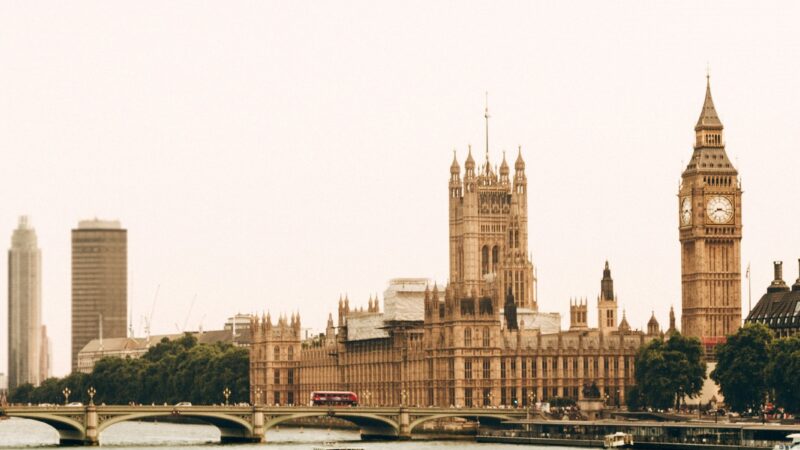
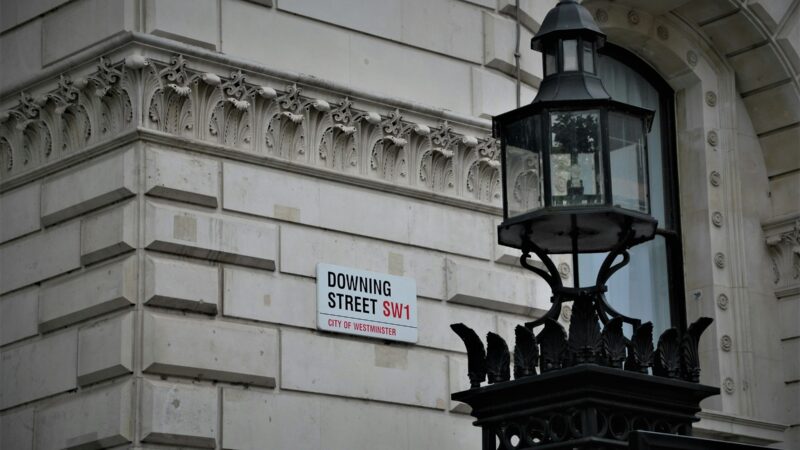
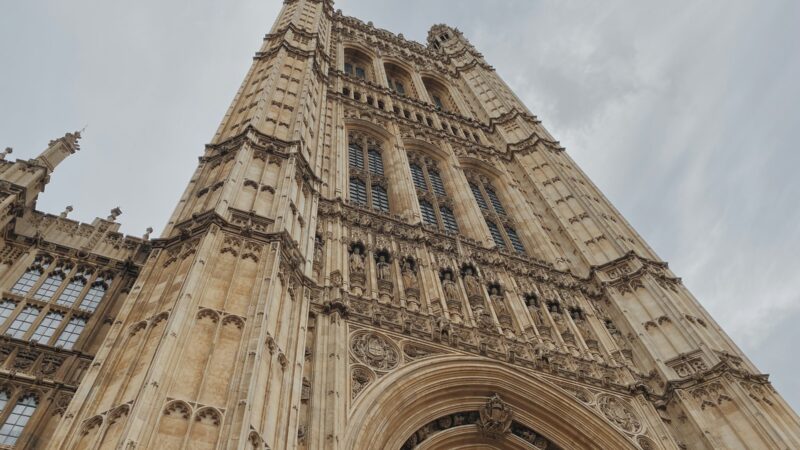

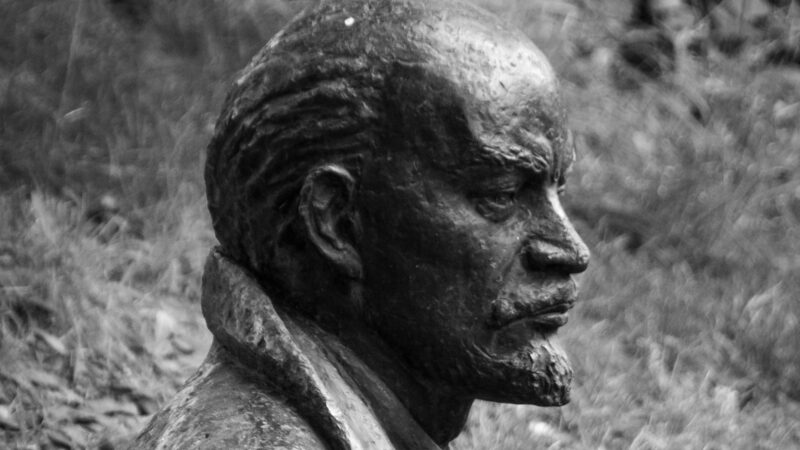

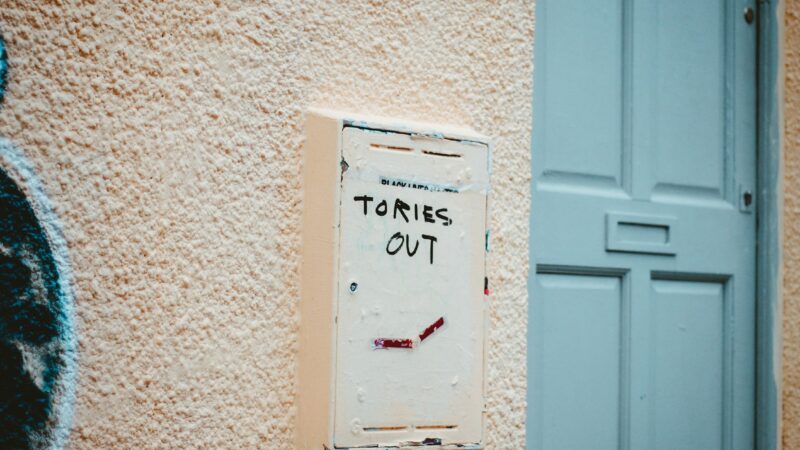


Why We Shouldn’t Abandon Politics
Until a few weeks ago, I was thoroughly resigned to the fact that I would not be voting for the first time in my adult life.
This wasn’t a flippant or particularly natural decision for me. A fan of unfashionable causes from a young age, I had always bought into our democratic political system and believed that despite its faults, ours was preferable to the large majority of those around the world.
I’d argue with my sixth form college history teacher, a chain-smoking trade union crustacean, that the Cuban revolution was not a good thing actually. At university, I set up the local youth chapter of UKIP and was one of approximately three students who even signalled that they would vote for Brexit.
As one can imagine, this made me very popular amongst the kombucha-brewing techno-listening charity shop fashionistas who I stubbornly brushed shoulders with by insisting on frequenting their hipster coffee shop, where once a ‘trans’ person told me I should “stop reading the fascist Spectator”.
My earliest political instinct, that our foreign policy did not serve our interests and was based on lies (an instinct that has only grown stronger) was also, I thought, sufficiently represented in our media and political system. I voted, I got excited about elections, watched the BBC and took politics seriously.
Everything changed in early 2020. Watching the entire ‘free world’ engage in highly coordinated state propaganda, erect detainment camps, lock people in their homes for months at a time, and by hook and by crook inject the vast majority of the population with a substance they weren’t allowed to scrutinise in polite society because ‘The Experts’ told them to, changed how I look at politics forever.
I was always aware of the military-industrial complex and its influence, and of that of the financial system. What I have since learnt is that these forces of evil are joined by many other interest groups: Big Pharma, Big Tech, Big Food and the billionaire-foundation complex.
The mask-wearing millions even turned my anger towards them, the public as a whole, which was a very different feeling for a ‘power-to-the-people’, ‘silent-majority’ populist as I had up until then been. What morons, I thought.
How did I ever trust in the collective wisdom, the ‘common sense’ of the public, who had en masse accepted the (even then) clearly moronic behaviour of ‘stay-at-home’ rules and wearing chemical-laden Chinese face-nappies on while alone and outside?
When the Russians entered Ukraine in early 2022, this feeling was compounded. The Covid era had caught everyone off guard, but Ukraine was something I had seen coming for a decade.
In 2014, the year when the Russia-Ukraine war actually started, I had just started university studying, of all things, International Relations and Russian language. I had a large number of Russian and Ukrainian friends. I spent my summers volunteering at educational camps not far from the Ukrainian border. After graduating, I moved to Moscow and started working in TV.
This is my way of saying that I had followed the events since 2014 in detail, with interest, and understood the positions of both sides, the actors involved and like Nigel Farage, had a very strong feeling that this was a disaster in the making. Yet this was a position made paramount to treason. Putin was Hitler, and that was it.
Back living in London and working in UK media after riding out the worst of the pandemic in Istanbul, I had become fully cynical about politics.
How could our parochial, insular and frivolous party politics ever be a solution to the powerful global forces that had transformed the world within just a couple of years? How had I believed that the political fight I had been fighting actually had any chance of taking Britain away from corrupt globalist forces and ‘taking back control’ for the people? Brexit now appeared to be window dressing.
In fact, I had come to believe that I had been seriously deceived. Years of energy were given, and the country was seriously divided, and for what? To have more mass immigration and more economic decline under more Conservative government, with biomedical tyranny and continental war to boot?
In that time, I began to believe in the devil, which was then a stepping stone to believing in God. The world, it appeared, was the devil’s realm. The compounding increase in far-liberal and ultra-progressive ideologies, and the resulting destruction of the family and social degradation, made this clearer.
I concluded that the best way to fight in a world run by the devil, was not through politics, but through free will and faith, walking towards God through this darkness. I still hold that to be absolutely true.
Yet something has happened over literally a matter of weeks that has reignited my interest in politics, and it is more than the return of Nigel Farage, although that has been the catalyst.
The prospect of total Tory collapse was first enticing only out of pure spite.
I had been critical of Farage, one of my political heroes, for what I viewed as terrible positions taken by him and his party during the Covid era, and a perceived silence on our disastrous foreign policy, after years of being outspoken and having the right idea.
Though my disappointment in and disillusionment with politics did indeed make me cynical, nothing made me more cynical than working in British media.
After working with interesting, heterodox international and expat journalists abroad, I discovered that back home it’s staffed largely by mediocrities, as fickle and, frankly, basic as any KMPG graduate or marketing intern.
Outside of the narcissism of small differences, wholly adopted from newspaper op-eds and ‘journo Twitter’ in cyclical bouts of opinion bottom-feeding, they are often not the well-read intelligentsia that they present themselves to be.
Yet the depiction given by many in sceptic quarters, that narratives are tightly controlled by explicit political directives handed out from above, a view I have been sympathetic to in the recent past, does not seem to hold water.
Don’t get me wrong, the fact that there are a small handful of news wires which provide thousands of newspapers and news channels with the same stories, they decide to put out in the way they want, is far from ideal and does have the ability to influence the news cycle.
Yet on the day-to-day, factory-floor level, the reality is that the media, and politics, is largely made up of people who are subject to the very same waves of information warfare, perception manipulation and social acceptability that the general public and all of us are to an extent.
If it is indeed the case, as I now believe, that the enemy is not only far weaker than it has led us to believe, but has never been weaker than it is now, we do not only have the possibility the shift the Overton window through politics, which the media have no way of hiding from, but that we have a duty to be happy warriors and believe that it is possible to effect change.
For those still rightly enraged about the collective amnesia over Covid era mandates and who therefore see Reform as invalidated by not choosing to campaign on that, the reality is that its leadership now hold the correct view of the lockdowns and the jabs, even with the benefit of hindsight.
This won’t satisfy everyone, and I am completely sympathetic to that, but as Bismarck famously said, politics is the art of the possible, and what is possible at the moment is to mobilise around our current problems. Immigration is the obvious issue that will galvanise serious support against the uniparty – and our demographics are our ultimate destiny.
The rise of Reform to neck-and-neck polling position with the Tories is indeed an impressive feat. In fact, the campaign of the Conservatives in this election, which suspiciously feels like it is being directly run by the Labour Party for their own benefit, has got many wondering if this is not an orchestrated handing over of the baton.
In late March, Barack Obama, the man rumoured to be de facto running the Biden administration and campaign, dropped in to see Prime Minister Sunak, for reasons undisclosed.
In the following weeks there was talk by Andrew Bridgen MP that Sunak had been ‘told by the generals’ that we would officially declare we were at war against Russia in the summer ahead of a major escalation. The PM, it is alleged, responded that he did not want to be a wartime leader and a couple of weeks later had abruptly called an election.
All of this, alongside Rishi’s announcement in the rain, which bloggers have called a ‘humiliation ritual’, has led some theorists to believe the Tories are basically throwing the election. Reform, so the theory goes, is ‘controlled opposition’ designed to contain the Tory exodus.
There might be elements of truth to what I have just outlined but my personal experiences with Reform’s leaders do not lead me to that final conclusion. Farage and his team are genuinely running an anti-establishment revolt.
Not only is he running on the same issues which have only gotten worse since Brexit, our broken economy and the rapid demographic transformation of the country, but there is plenty of red-meat for sceptics; railing against the Tories for ‘taking away our freedoms’, hitting out against the World Health Organisation and the World Economic Forum, fighting against debanking, a cashless society and Net Zero lunacy. It’s not a bad platform.
The Andrew Breitbart doctrine is that ‘politics is downstream from culture’. It might then seem obvious that culture is therefore downstream from media, but as I have outlined, that is in fact not the case.
Our media is downstream from both politics and culture. Farage is very successfully using will to power to shift the Overton window and provoke the media into discussions they would ordinarily not have.
Whether you trust him to stick to these positions when push comes to shove almost doesn’t matter as much as his proven ability to act as a battering ram against our established political elite. In any case, he has been consistent on everything and on the Covid saga he has now come to the right place, which is more than can be said for others.
It has been Farage’s positioning on Ukraine, however, that has clinched it for me.
Despite the potential to alienate much of Tory Boomer-England who display their Ukraine flags with the same zeal that Corbynista students do with their trans-Palestinian-EU ones, Farage has stuck to his long-held position that this horrendous conflict was a long time coming.
The establishment, smelling blood, sought to use this to neutralise him, but he hit back harder and spent days making speeches outlining the failed wars of the uniparty, the lies they were based on and their horrific consequences. Labour in Iraq, the Tories in Libya and Syria and yes, Ukraine. “Foreign policy matters!” he’s been telling energetic crowds.
The power of taboos is a force more potent and yet more vulnerable than we imagine. A few hundred thousand of us silently crossing boxes in polling booths do have the power to change the parameters of acceptable discussion by the fallout it can cause for years to come. We should not scoff at that.
At a time like this, when all signs are that the most dangerous and corrupt elements of the collective West are itching for a global conflict, the man who proudly bellows to large crowds that “We only go to war as a very, very last extreme; I will campaign for peace wherever it is possible”, has my vote.
As it says in Psalm 146, Trust in God, Creator and Redeemer:
I won’t, but I will not abandon politics as a way of shifting the dial to expand public consciousness and as a way to take us off potential paths of ruin. Not yet.
Photo Credit.